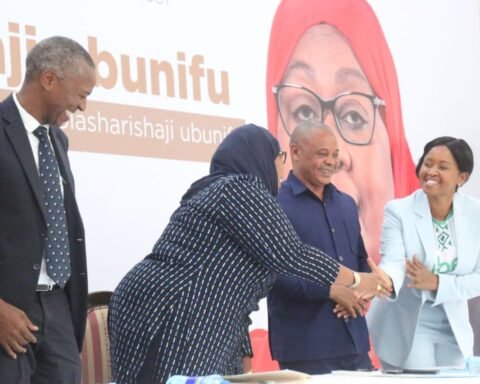In Tanzania’s evolving political landscape, one group is emerging as a quiet but powerful force—wajumbe, the grassroots delegates who hold the key to candidate nominations within the ruling party.
While this internal vetting system has existed for years in Chama Cha Mapinduzi (CCM), it was the events leading up to the 2015 General Election that turned national attention toward their growing influence. That year, the party stunned the country by excluding several powerful figures from presidential contention, including the late Edward Lowassa—a seasoned politician and former Prime Minister of Tanzania.
The message was loud and clear: political success was no longer reserved for the elite. Instead, decision-making had moved downward—into the hands of grassroots party delegates, many of whom are relatively unknown outside their local wards.
Before 2015, nominations were often seen as influenced by proximity to the party’s top brass or by personal financial muscle. Candidates with national recognition could use their profiles, patronage networks, or campaign budgets to dominate the internal race. But the 2015 outcome changed that logic.
The result sparked a shift in political strategy. Aspirants now focus on building local relationships, attending branch meetings, and listening to real community needs instead of relying on high-level endorsements or media exposure.
“You might be a national figure, but if you ignore the wajumbe, you’re out,” said one regional party organizer.
In the CCM structure, wajumbe (Swahili for delegates or committee members) represent the smallest units of party governance. Yet today, they hold remarkable sway in determining who gets on the ballot—from parliamentary seats to the presidency.
Also Read; British, Singapore Airlines Cancel Dubai Flights After Strikes
Their influence has introduced a kind of grassroots accountability, where candidates are expected to answer directly to the people. In turn, internal campaigns have become more modest, issue-based, and community-oriented.
This transformation aligns with broader calls for internal party democracy across sub-Saharan Africa, where party structures are often top-down and opaque. By empowering local delegates, Tanzania may be offering a model of reform worth watching.
As the nation looks ahead to the October 2025 General Election, party insiders and political analysts are closely watching whether this grassroots-first approach will hold. Will wajumbe continue to drive the agenda, or will old hierarchies try to reassert control?
The balance between grassroots empowerment and centralized authority could define the tone of this election—and shape the future of Tanzanian democracy.
One thing is already certain: the days of ignoring the base are over. In Tanzania’s political machine, the smallest cogs are now driving the biggest wheels.







